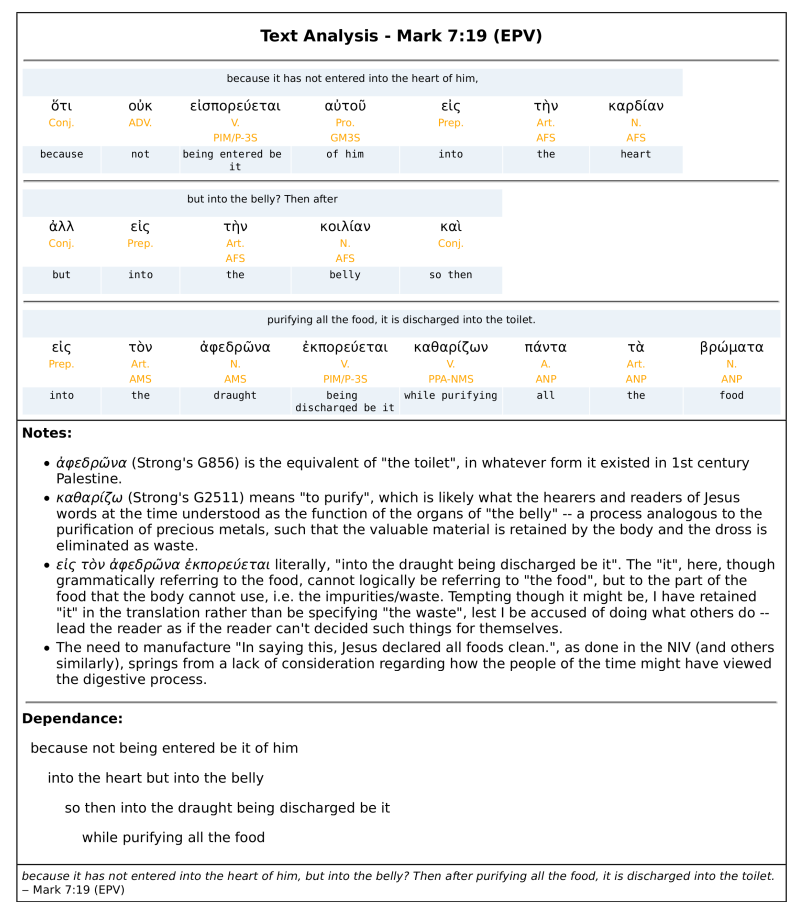Jesus was a Jew and was speaking to Jews. Therefore when it says he was declaring all food Kosher, he was talking about what was food to a Jew not what is food to a western mind (even if it was Mark who pened this in). Besides the problem at hand was not the "Jewish" food but it was not washing your hands before you eat the food thereby making the food unclean or unfit to eat....Sorry but cats, rats and pigs were never on the Jewish food menu.
In Act 25:7-8. When Paul came in, the Jews who had come down from Jerusalem stood around him. They brought many serious charges against him, but they could not prove them.
8 Then Paul made his defense: “I have done nothing wrong against the Jewish law or against the temple or against Caesar.”
He could not have said he did nothing against the Jewish law if he didn't eat kosher. Not eating kosher was definitely against the Jewish laws. Paul traveled and preach too many different people but yet he stayed kosher. Yes I know you may quote Peter's vision but the Holy Spirit revealed that the Gentiles we're now acceptable to God it had nothing to do with food...In Acts 10:28 Peter said : " And he said unto them, Ye know how that it is an unlawful thing for a man that is a Jew to keep company, or come unto one of another nation; but God hath shewed me that I should not call any man common or unclean." Also it says when the Jews heard that Peter went to Cornelius's house they did not praise God for freeing them from kosher laws but they they understood what Peter's vision ment ...that now the repentant Gentiles, who were unclean, are considered clean and I praise God for now accepting the Gentiles who believed. Thats found in Acts 11:18. "When they heard these things, they held their peace, and glorified God, saying, Then hath God also to the Gentiles granted repentance unto life.". They did not thank God for freeing them from the Jewish kosher laws....Do not impose something God never intended into his words. You get stuck in your great Greek knowledge and miss the context of what's being said.
